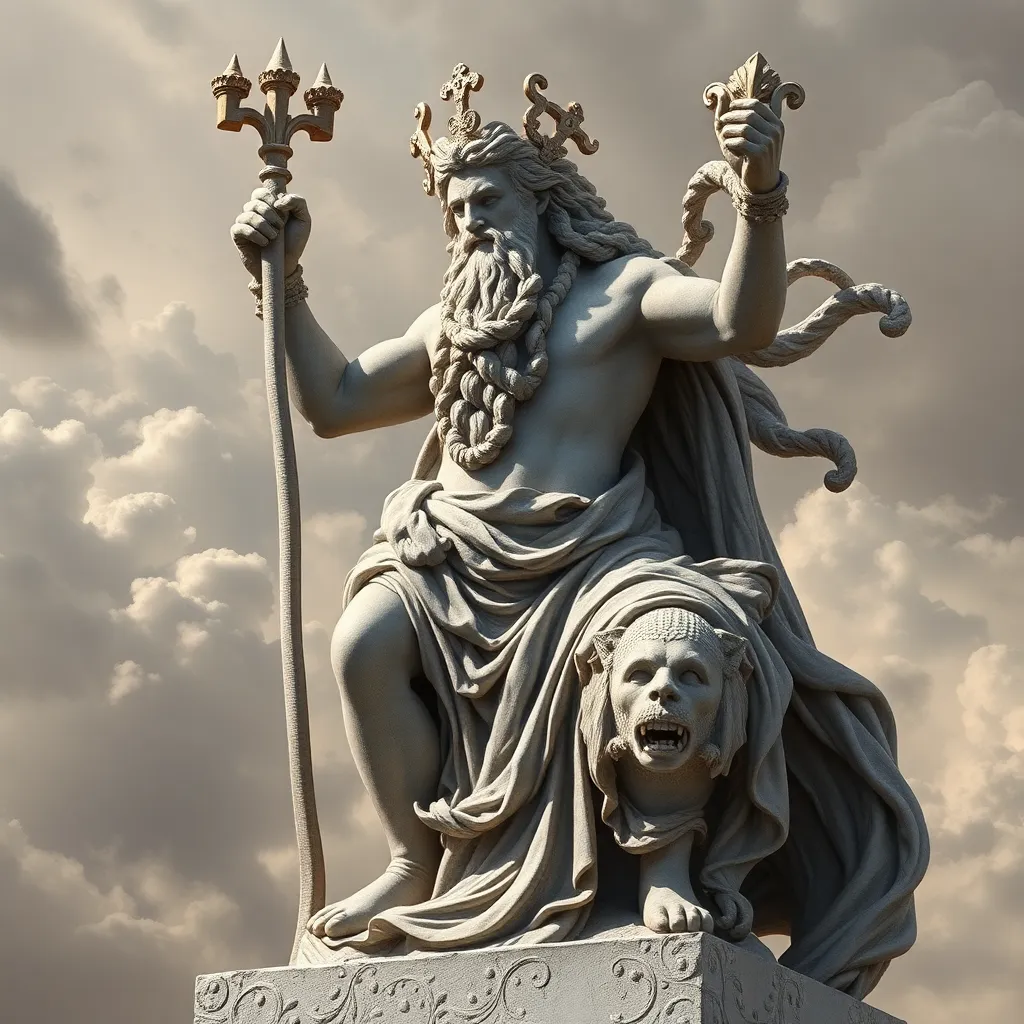Dionysus as a Symbol of Rebellion and Social Change
I. Introduction
Dionysus, the Greek god of wine, ecstasy, and festivity, holds a prominent place in Greek mythology. His character is complex, embodying both joyous celebration and chaotic destruction. As a cultural and social icon, Dionysus represents the duality of human nature and societal norms. This article argues that Dionysus embodies rebellion and social change through his multifaceted character and the rituals associated with his worship.
II. Historical Context of Dionysian Worship
The origins of Dionysus can be traced back to ancient Greece, where he was initially a fertility deity associated with the harvest. Over time, his cult evolved significantly, gaining importance as a symbol of liberation and ecstatic experience. The following points illustrate the historical context of Dionysian worship:
- Origins: Dionysus is believed to have originated in the regions of Thrace or Phrygia, where he was worshiped as a god of fertility and vine cultivation.
- Cult Evolution: By the 6th century BCE, Dionysus had become a central figure in Athenian society, integrating various local deities and practices.
- Dionysia Festivals: The Dionysia, a major festival held in Athens, featured theatrical performances and was crucial for promoting social cohesion and community identity.
III. The Dual Nature of Dionysus
Dionysus is often depicted as a god of wine, ecstasy, and fertility, symbolizing joy and celebration. However, he also embodies darker aspects, including chaos, madness, and destruction. This duality is significant as it reflects the tensions within society:
- God of Joy: Dionysus represents the liberating power of intoxication and the joy of communal celebration.
- Darker Aspects: His ability to induce madness and chaos serves as a reminder of the thin line between ecstasy and destruction.
This dual nature of Dionysus illustrates societal tensions and the inherent need for rebellion against restrictive norms.
IV. Dionysus and the Concept of Freedom
Dionysus is a powerful symbol of freedom, particularly through the lens of intoxication and ecstatic experiences. His rituals often involved a rejection of societal norms and constraints:
- Intoxication as Liberation: The act of consuming wine during Dionysian festivals symbolizes liberation from the mundane and the constraints of everyday life.
- Ritual Rebellion: Dionysian rituals often involved breaking taboos, subverting social hierarchies, and allowing for individual expression.
The themes of liberation and rebellion associated with Dionysus have historically inspired various social movements, encouraging individuals to embrace their true selves and challenge societal limitations.
V. Dionysus in Literature and Philosophy
Dionysus has been a prominent figure in classical literature and philosophical discourse, often representing themes of rebellion against conformity:
- Euripides’ “The Bacchae”: This play explores the consequences of denying the power of Dionysus, illustrating the tension between rationality and the chaotic forces of nature.
- Nietzsche’s Philosophy: Friedrich Nietzsche viewed Dionysus as a symbol of the primal instincts and the celebration of life, contrasting him with the Apollonian ideals of order and reason.
These literary and philosophical interpretations underscore the significance of Dionysus as a figure of rebellion and a challenge to societal norms.
VI. Dionysus as a Catalyst for Social Change
The festivals and rituals associated with Dionysus played a crucial role in challenging social hierarchies and promoting social change:
- Challenging Hierarchies: The Dionysian festivals allowed participants to engage in role reversals, blurring the lines between social classes and genders.
- Historical Cases: Throughout history, movements inspired by Dionysian ideals have emerged, advocating for social justice and equality.
Moreover, the values associated with Dionysus continue to resonate in modern social justice movements, highlighting his relevance as a catalyst for change.
VII. Contemporary Interpretations of Dionysus
In modern times, Dionysus has found new expressions in art, music, and popular culture, reflecting a resurgence of interest in his themes:
- Modern Art and Music: Contemporary artists and musicians often draw inspiration from Dionysian themes, celebrating freedom, ecstasy, and rebellion.
- Social Discourse: The ideals associated with Dionysus are increasingly discussed in the context of contemporary social movements advocating for individual rights and freedoms.
Dionysus serves as a model for contemporary rebellion and change, encouraging individuals to embrace their passions and challenge societal constraints.
VIII. Conclusion
In conclusion, Dionysus stands as a powerful symbol of rebellion and social change. His complex character and the rituals associated with his worship reflect the tensions within society and the yearning for liberation. The enduring legacy of Dionysus resonates in modern culture, inspiring individuals to embrace their true selves and challenge conformity. As we continue to navigate societal challenges, embracing Dionysian ideals can foster individual expression and collective change.




